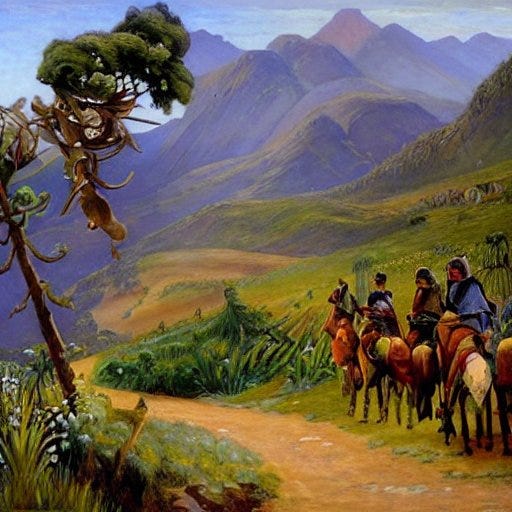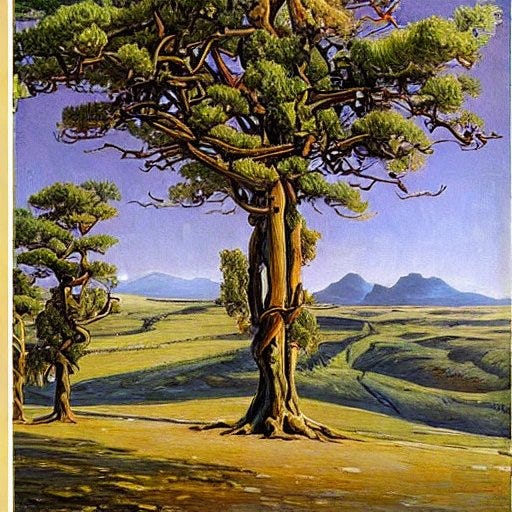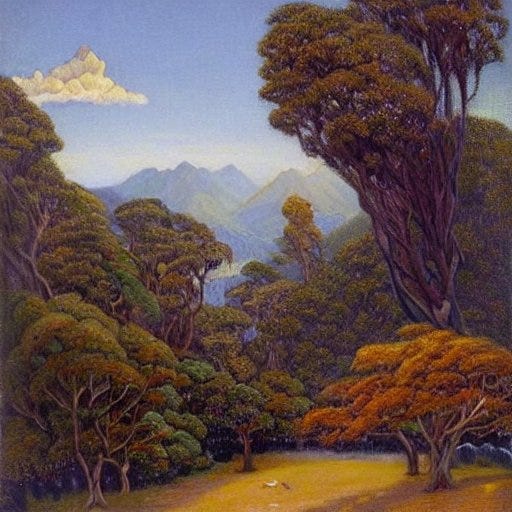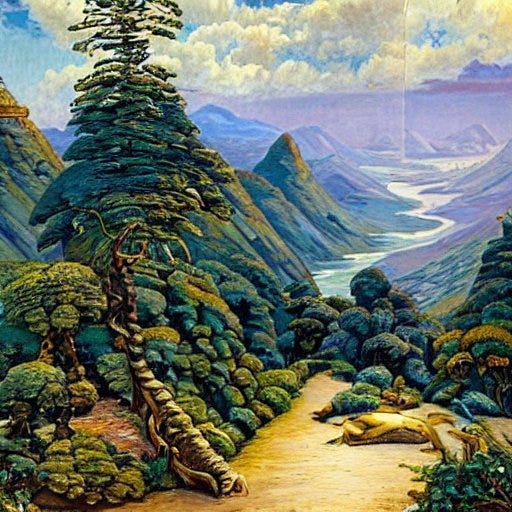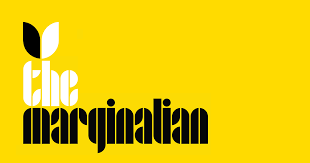17 Life-Learnings from 17 Years of The Marginalian: The Extraordinary Journey of Maria Popova
A Sense of Place Magazine was an unabashed fan of Maria Popova’s celebrated blog Brain Pickings, which has now evolved into the more mature The Marginalian, easily one of the best literary journals in the world.
Her book Figuring is a fascinating study of the loneliness of genius before the internet age.
https://asenseofplacemagazine.com/a-celebration-of-genius-maria-popova-and-figuring/embed/#?secret=v0j7b23Cau#?secret=I3j7SLHRL0
Maria Popova is a Bulgarian born New York based polymath who has it seems read everything so the rest of us don’t have to. Not just supremely intelligent, she has an uncanny eye for beauty combined with a deeply felt sense of what makes us human.
She is also by the bye a great fan of one of this century’s other beaming creatives, Nick Cave, one of Australia’s most famous sons. We cannot recommend The Marginalian highly enough. In this piece Maria Popova tells her side of the story.
The Marginalian was born on October 23, 2006, under an outgrown name, to an outgrown self that feels to me now almost like a different species of consciousness. (It can only be so — if we don’t continually outgrow ourselves, if we don’t wince a little at our former ideas, ideals, and beliefs, we ossify and perish.)
Seven years into this labor of love, which had by then become my life and livelihood, I decided to set down some of the most important things I learned about living in the course of writing this personal record of reckoning with our search for meaning. Every year in the decade since, I have added one new learning and changed none of the previous. (It can only be so — a person is less like a star, whose very chemistry, the source of its light, changes profoundly over its life-cycle, and more like a planet, like this planet, whose landscape changes over the ages but is always shaped by the geologic strata layered beneath, encoding everything the planet has been since its birth.)
Eventually, when email newsletter delivery services became available and affordable to my bootstrapped budget, the website got a newsletter, coming full circle. To this day, it goes out weekly, carrying into a far vaster digital universe a spare selection of the writings I publish on the website throughout the week.
In those early years, working my banal day jobs hostage to my visa and the demands of my metabolism, not once did it occur to me that this labor of love would become both the pulse-beat of my life and the sole source of my livelihood. And yet, in a baffling blur of time and chance — the anthropocentric term for which is luck — the seven friends somehow became several million readers without much effort on my behalf beyond the daily habit of showing up for the blank page.
There is, of course, nothing singular or surprising about this — Earth carves canyons into rock with nothing more than a steadfast stream. Somehow we keep forgetting that human nature is but a fractal of nature itself.
Several years in, I thought it would be a good exercise to reflect on what I was learning about life in the course of composing The Marginalian, which was always a form of composing myself. Starting at year seven, I began a sort of public diary of learnings — never revising those of the previous years, only adding some newly gleaned understanding with each completed orbit, the way our present selves are always a Russian nesting doll containing and growing out of the irrevisible selves we have been.
And now, at year sixteen, here they all are, dating back to the beginning.
1. Allow yourself the uncomfortable luxury of changing your mind.
Cultivate that capacity for “negative capability.”
We live in a culture where one of the greatest social disgraces is not having an opinion, so we often form our “opinions” based on superficial impressions or the borrowed ideas of others, without investing the time and thought that cultivating true conviction necessitates.
We then go around asserting these donned opinions and clinging to them as anchors to our own reality. It’s enormously disorienting to simply say, “I don’t know.” But it’s infinitely more rewarding to understand than to be right — even if that means changing your mind about a topic, an ideology, or, above all, yourself.
2. Do nothing for prestige or status or money or approval alone.
As Paul Graham observed, “prestige is like a powerful magnet that warps even your beliefs about what you enjoy. It causes you to work not on what you like, but what you’d like to like.” Those extrinsic motivators are fine and can feel life-affirming in the moment, but they ultimately don’t make it thrilling to get up in the morning and gratifying to go to sleep at night — and, in fact, they can often distract and detract from the things that do offer those deeper rewards.
3. Be generous.
Be generous with your time and your resources and with giving credit and, especially, with your words. It’s so much easier to be a critic than a celebrator. Always remember there is a human being on the other end of every exchange and behind every cultural artefact being critiqued. To understand and be understood, those are among life’s greatest gifts, and every interaction is an opportunity to exchange them.
4. Build pockets of stillness into your life.
Meditate. Go for walks. Ride your bike going nowhere in particular. There is a creative purpose to daydreaming, even to boredom.
The best ideas come to us when we stop actively trying to coax the muse into manifesting and let the fragments of experience float around our unconscious mind in order to click into new combinations.
Without this essential stage of unconscious processing, the entire flow of the creative process is broken.
Most important, sleep. Besides being the greatest creative aphrodisiac, sleep also affects our every waking moment, dictates our social rhythm, and even mediates our negative moods. Be as religious and disciplined about your sleep as you are about your work. We tend to wear our ability to get by on little sleep as some sort of badge of honour that validates our work ethic. But what it is really is a profound failure of self-respect and of priorities. What could possibly be more important than your health and your sanity, from which all else springs?
5. Integrity
As Maya Angelou famously advised, when people tell you who they are, believe them. Just as important, however, when people try to tell you who you are, don’t believe them. You are the only custodian of your own integrity, and the assumptions made by those that misunderstand who you are and what you stand for reveal a great deal about them and absolutely nothing about you.
6. Presence is far more intricate and rewarding an art than productivity.
Ours is a culture that measures our worth as human beings by our efficiency, our earnings, our ability to perform this or that. The cult of productivity has its place, but worshipping at its altar daily robs us of the very capacity for joy and wonder that makes life worth living — for, as Annie Dillard memorably put it, “how we spend our days is, of course, how we spend our lives.”
7. “Expect anything worthwhile to take a long time.”
This is borrowed from the wise and wonderful Debbie Millman, for it’s hard to better capture something so fundamental yet so impatiently overlooked in our culture of immediacy. The myth of the overnight success is just that — a myth — as well as a reminder that our present definition of success needs serious retuning. The flower doesn’t go from bud to blossom in one spritely burst and yet, as a culture, we’re disinterested in the tedium of the blossoming. But that’s where all the real magic unfolds in the making of one’s character and destiny.
8. Seek out what magnifies your spirit.
Patti Smith, in discussing William Blake and her creative influences, talks about writers and artists who magnified her spirit — it’s a beautiful phrase and a beautiful notion. Who are the people, ideas, and books that magnify your spirit? Find them, hold on to them, and visit them often. Use them not only as a remedy once spiritual malaise has already infected your vitality but as a vaccine administered while you are healthy to protect your radiance.
9. Don’t be afraid to be an idealist.
There is much to be said for our responsibility as creators and consumers of that constant dynamic interaction we call culture — which side of the fault line between catering and creating are we to stand on? The commercial enterprise is conditioning us to believe that the road to success is paved with catering to existing demands — give the people cat GIFs, the narrative goes, because cat GIFs are what the people want.
But E.B. White, one of our last great idealists, was eternally right when he asserted half a century ago that the role of the writer is “to lift people up, not lower them down” — a role each of us is called to with increasing urgency, whatever cog we may be in the machinery of society. Supply creates its own demand. Only by consistently supplying it can we hope to increase the demand for the substantive over the superficial — in our individual lives and in the collective dream called culture.
10. Don’t just resist cynicism — fight it actively.
Fight it in yourself, for this ungainly beast lies dormant in each of us, and counter it in those you love and engage with, by modelling its opposite.
Cynicism often masquerades as nobler faculties and dispositions, but is categorically inferior. Unlike that great Rilkean life-expanding doubt, it is a contracting force. Unlike critical thinking, that pillar of reason and necessary counterpart to hope, it is inherently uncreative, unconstructive, and spiritually corrosive.
Life, like the universe itself, tolerates no stasis — in the absence of growth, decay usurps the order. Like all forms of destruction, cynicism is infinitely easier and lazier than construction. There is nothing more difficult yet more gratifying in our society than living with sincerity and acting from a place of largehearted, constructive, rational faith in the human spirit, continually bending toward growth and betterment. This remains the most potent antidote to cynicism. Today, especially, it is an act of courage and resistance.
11. Question your maps and models of the universe
A reflection originally offered by way of a wonderful poem about pi: Question your maps and models of the universe, both inner and outer, and continually test them against the raw input of reality. Our maps are still maps, approximating the landscape of truth from the territories of the knowable — incomplete representational models that always leave more to map, more to fathom, because the selfsame forces that made the universe also made the figuring instrument with which we try to comprehend it.
12. Figuring Infinity
Because Year 12 is the year in which I finished writing Figuring (though it emanates from my entire life), and because the sentiment, which appears in the prelude, is the guiding credo to which the rest of the book is a 576-page footnote, I will leave it as it stands: There are infinitely many kinds of beautiful lives.
13. In any bond of depth and significance, forgive, forgive, forgive. And then forgive again.
The richest relationships are lifeboats, but they are also submarines that descend to the darkest and most disquieting places, to the unfathomed trenches of the soul where our deepest shames and foibles and vulnerabilities live, where we are less than we would like to be.
Forgiveness is the alchemy by which the shame transforms into the honour and privilege of being invited into another’s darkness and having them witness your own with the undimmed light of love, of sympathy, of non-judgmental understanding. Forgiveness is the engine of buoyancy that keeps the submarine rising again and again toward the light, so that it may become a lifeboat once more.
14. Choose joy.
Choose it like a child chooses the shoe to put on the right foot, the crayon to paint a sky. Choose it at first consciously, effortfully, pressing against the weight of a world heavy with reasons for sorrow, restless with need for action. Feel the sorrow, take the action, but keep pressing the weight of joy against it all, until it becomes mindless, automated, like gravity pulling the stream down its course; until it becomes an inner law of nature. If Viktor Frankl can exclaim “yes to life, in spite of everything!” — and what an everything he lived through — then so can any one of us amid the rubble of our plans, so trifling by comparison. Joy is not a function of a life free of friction and frustration, but a function of focus — an inner elevation by the fulcrum of choice. So often, it is a matter of attending to what Hermann Hesse called, as the world was about to come unworlded by its first global war, “the little joys”; so often, those are the slender threads of which we weave the lifeline that saves us.
Delight in the age-salted man on the street corner waiting for the light to change, his age-salted dog beside him, each inclined toward the other with the angular subtlety of absolute devotion.
Delight in the little girl zooming past you on her little bicycle, this fierce emissary of the future, rainbow tassels waving from her handlebars and a hundred beaded braids spilling from her golden helmet.
Delight in the snail taking an afternoon to traverse the abyssal crack in the sidewalk for the sake of pasturing on a single blade of grass.
Delight in the tiny new leaf, so shy and so shamelessly lush, unfurling from the crooked stem of the parched geranium.
I think often of this verse from Jane Hirshfield’s splendid poem “The Weighing”:
So few grains of happiness
measured against all the dark
and still the scales balance.
Yes, except we furnish both the grains and the scales. I alone can weigh the blue of my sky, you of yours.
15. Outgrow yourself.
We are born without choosing to, to parents we haven’t chosen, into bodies and borders we haven’t chosen, to exist in a region of spacetime we haven’t chosen for a duration we don’t choose. As physicists know, we don’t choose the particular atoms that constellate our particular selves or the neural configurations that fire our consciousness. In consequence, as James Baldwin knew, we don’t even choose whom we love.
But amid our slender repertoire of agency are the labels we choose for our labours of love — the works of thought and tenderness we make with the whole of who we are.
A challenge arises when we make something over a long period of time.
16. Unself.
Nothing is more tedious than self-concern — the antipode of wonder.
Somewhere along the way, in the century of the self, we forgot each other. We forgot this vast and wonder-filled universe, of which we are each but a tiny and transient wonder.
We forgot that all creative work — be it music or mathematics, poetry or physics, anything we might call art — is a hand outstretched in the dark, reaching not for visibility but for the light that lives between us. Reaching for connection.
We forgot what Whitman knew even as he proclaimed “I celebrate myself!” — that “every atom belonging to me as good belongs to you.” No word appears in Leaves of Grass more times than you.
We are living through a pandemic of selfing — rampant self-celebration that mistakes applause for connection, likes for love. Social media companies are capitalizing on our native need for affirmation, exploiting our compromised immunity to manipulation at every turn: algorithms prioritizing selfies over sunflowers, algorithms amplifying the word I, algorithms doping us on the dopamine of being noticed, seducing us into forgetting the art and joy of noticing — that crowning glory of consciousness. And somewhere, in the quiet core of our being, this frantic hunt for likes is making us like ourselves less.
17. Everything is eventually recompensed, every effort of the heart eventually requited, though not always in the form you imagined or hoped for.
What redeems all of life’s disappointments, what makes all of its heartbreaks bearable, is the ability to see how the dissolution of a dream becomes the fertile compost of possibility. Buried between parentheses in the middle of Leaves of Grass is Whitman’s testament to this elemental truth, which turned his greatest heartbreak into his greatest masterpiece:
Sometimes with one I love I fill myself with rage for fear I effuse
unreturn’d love,
But now I think there is no unreturn’d love, the pay is certain one
way or another,
(I loved a certain person ardently and my love was not return’d,
Yet out of that I have written these songs.)
Illustrations in the style of Marianne North. To learn more about this fascinating artist go here:
https://www.themarginalian.org/2023/01/23/marianne-north/








